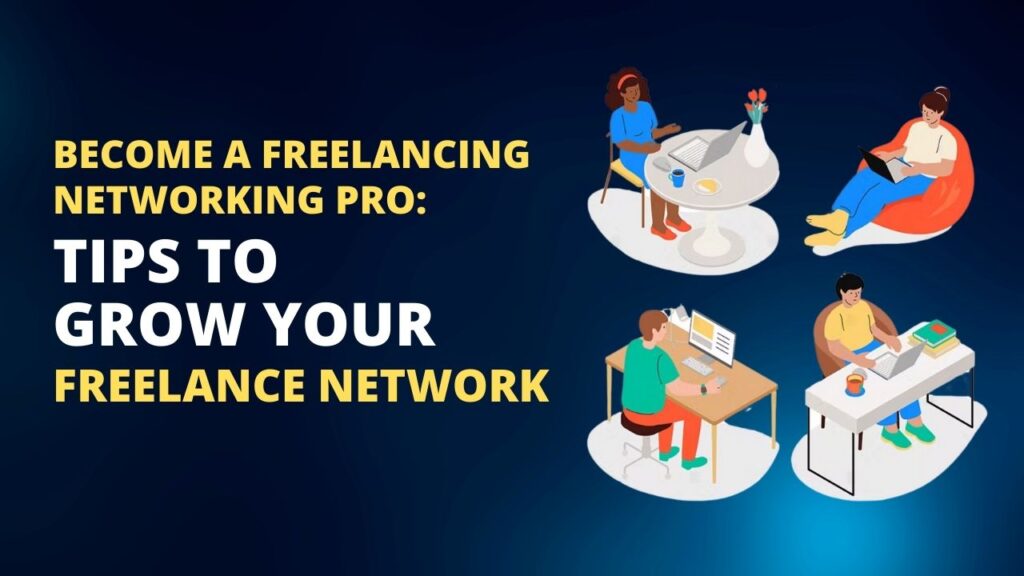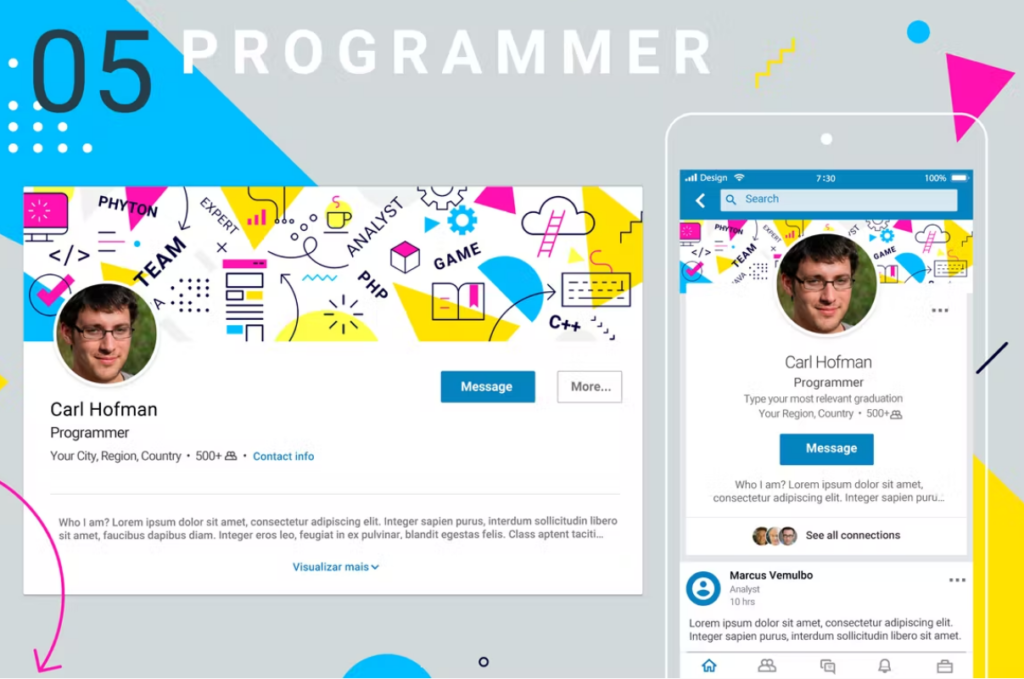Networking is an essential part of growing your freelance business. To become a networking pro, you must define your brand and target audience, establish connections, get involved in conversations, be yourself, stay organized, utilize social media, attend networking events, collaborate with others, create high-quality content, and reach out to influencers.

Knowing Your Goals
Knowing your goals is an essential first step in effective networking for freelancers. Before attending networking events, using social media, or reaching out to potential clients, freelancers should identify what they want to achieve through their networking efforts. This could include finding new clients, expanding their network, learning new skills, or establishing themselves as thought leaders in their industry. Once they have identified their goals, freelancers should set realistic targets and develop a plan for achieving them.
By knowing their goals, freelancers can focus their networking efforts on activities that will help them achieve them and avoid wasting time on activities that are unlikely to produce results.
Networking is essential for any freelancer as is learning from the experience of other successful freelancers:

This blog post will give some simple and quick tips to help you Network like a Pro!
1. Define Your Brand And Target Audience
Defining your brand and target audience is critical to effective networking. Identifying who you want to connect with and what message you want to send can help potential clients or collaborators become aware of your work. Create a brand with Canva:
2. Establish Connections
Building relationships and establishing connections is the next step. Attend events like workshops, seminars, and conferences, or participate in online communities related to your field. For example, join industry-related Facebook groups or Twitter chats, comment on relevant blog posts and share valuable content.
Authenticity is important. Networking is about forming relationships, not just selling yourself.
Be friendly and cheerful, and always try to add value to the conversation.
3. Stay Organized
Staying organized is critical. Set up a system that works for you, like using an address book, Trello, Asana or Evernote to keep track of contacts, notes, and interactions.
4. Utilize Social Media Platforms
Utilize social media platforms like Twitter, LinkedIn, and Instagram to reach potential. Clients or collaborators. Consistently share content that showcases your expertise and get feedback from the community. Focus on building relationships with people in the same space as you and consistently share content that will help showcase your knowledge.
Social media is also an excellent way to get feedback from the community about your services or products.

1. Twitter: Twitter is a social media platform that can be useful for freelancers to connect with potential clients, build their brands, and share their expertise. Freelancers can use Twitter to share industry news and trends, participate in relevant conversations and chats, and engage with other professionals in their field.
They can also use Twitter to showcase their work and build their brand by using relevant hashtags, retweeting, and engaging with their followers. To make the most out of Twitter, freelancers should post regularly, use Twitter analytics to measure the success of their efforts and interact with other professionals in their field.
Using Twitter effectively, freelancers can increase their visibility, build their brand, and find new work opportunities.

2. LinkedIn: LinkedIn is a social media platform significant for freelancers. It allows freelancers to create a professional profile and connect with other professionals in their industry. To make the most out of LinkedIn, freelancers should optimize their profiles by highlighting their skills and experience, using relevant keywords, and showcasing their work.
They can also use LinkedIn to find new clients by joining relevant groups, reaching out to potential clients, and sharing their work and expertise. Using LinkedIn effectively allows freelancers to expand their network, increase visibility, and find new employment opportunities.

3. Instagram: Instagram is social media platform freelancers increasingly use to showcase their work, connect with potential clients, and build their brands. Freelancers can use Instagram to showcase their portfolio, share their work process, and offer tips and advice related to their industry. They can also use relevant hashtags to increase visibility and connect with potential clients.
Don’t forget to follow up! Keep your connections updated on what you are working on and send
thank-you notes after each interaction.
5. Attending Networking Events
If you are new to networking and want to get some face-to-face interaction with potential clients or collaborators, attending events such as conferences, conventions, trade shows, meetups etc., can be a great way to do so.
Events like these allow you to put yourself out there and personally introduce your services. Be sure to bring business cards and prepare an elevator pitch so When someone asks what you do, you’ll be ready with a response!
6. Collaborate With Others
Collaborating with others in the same field can expand your network and hone your skills. You can reach out to people with a similar skill set as you and offer them the opportunity to work on projects together. This will help expand your network and allow you to hone your skills and gain valuable experience.
7. Create Content
Creating content is another excellent way to build relationships and establish yourself as an expert or thought leader in your area of expertise. Whether it’s writing a blog post, creating a video, podcast, or webinar – producing high-quality content that resonates with your target audience can go a long way in helping you build credibility and attract potential clients.
8. Reaching Out to Influencers
Reaching out to influencers in your field can make connections and help you establish yourself as an expert. Building relationships with key people in the industry is essential for success.
Conclusion
Networking is a crucial aspect of building a successful freelance career. By developing a solid network of contacts, freelancers can find new clients, expand their knowledge and skills, and build their brands. To become networking pros, freelancers should identify their goals and set realistic targets. They should then use various strategies, including attending networking events and using social media and other platforms.
By consistently implementing these strategies, freelancers can develop a strong network that will support their success and growth as a freelancer. Remember that networking is a long-term the effort and building relationships take time. By staying focused on their goals and investing time and effort in networking, freelancers can create a strong foundation for their freelance careers and achieve their desired success.















